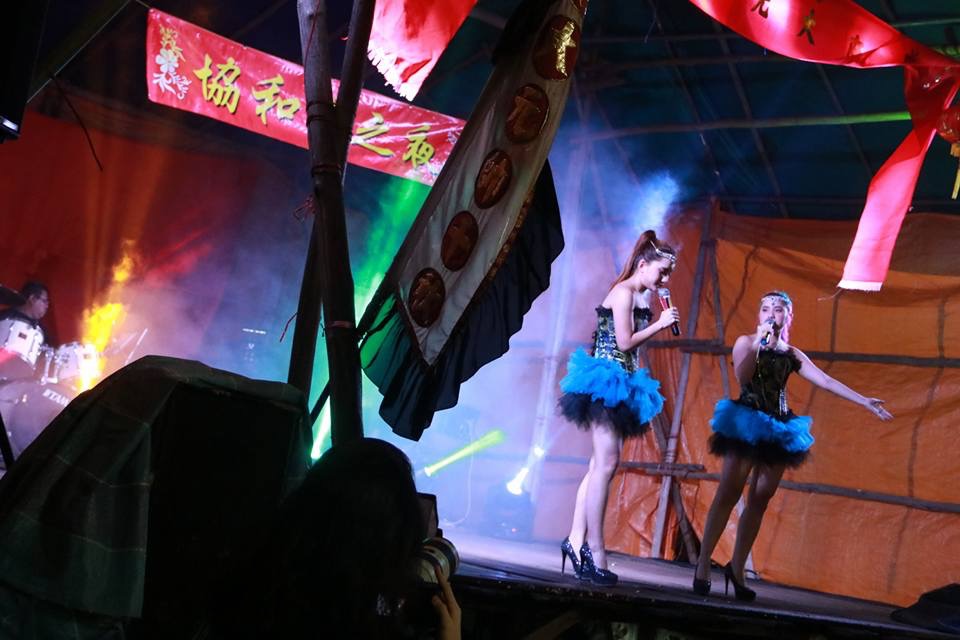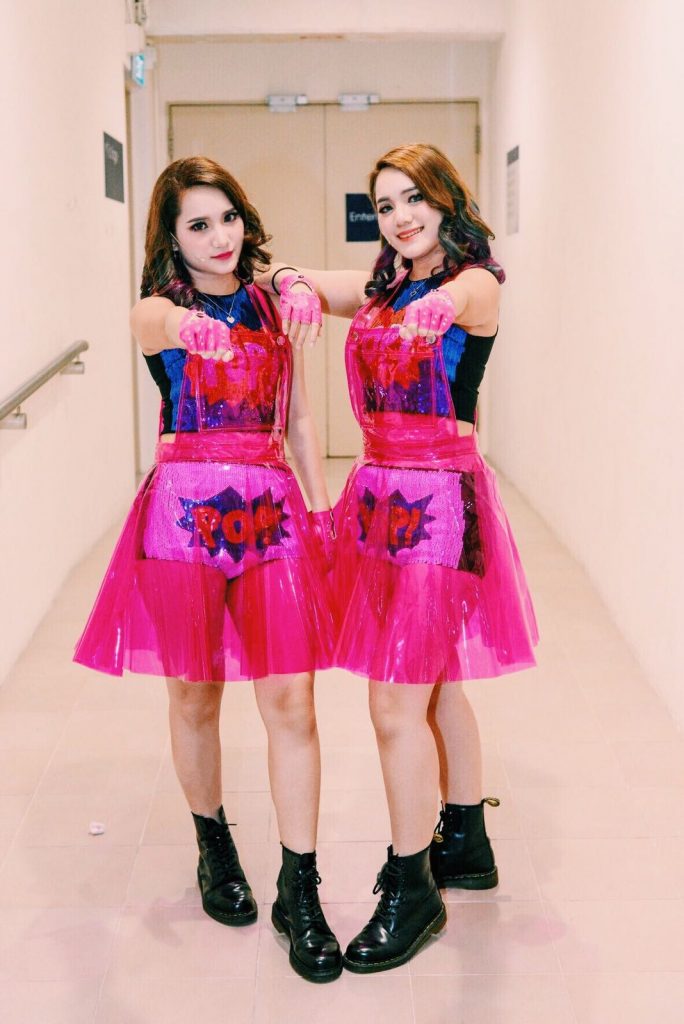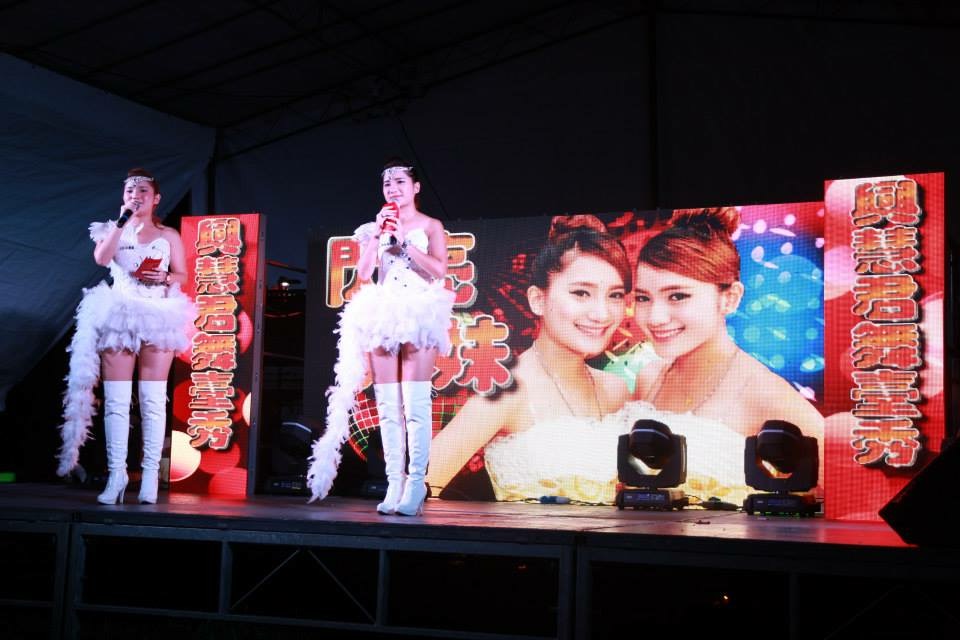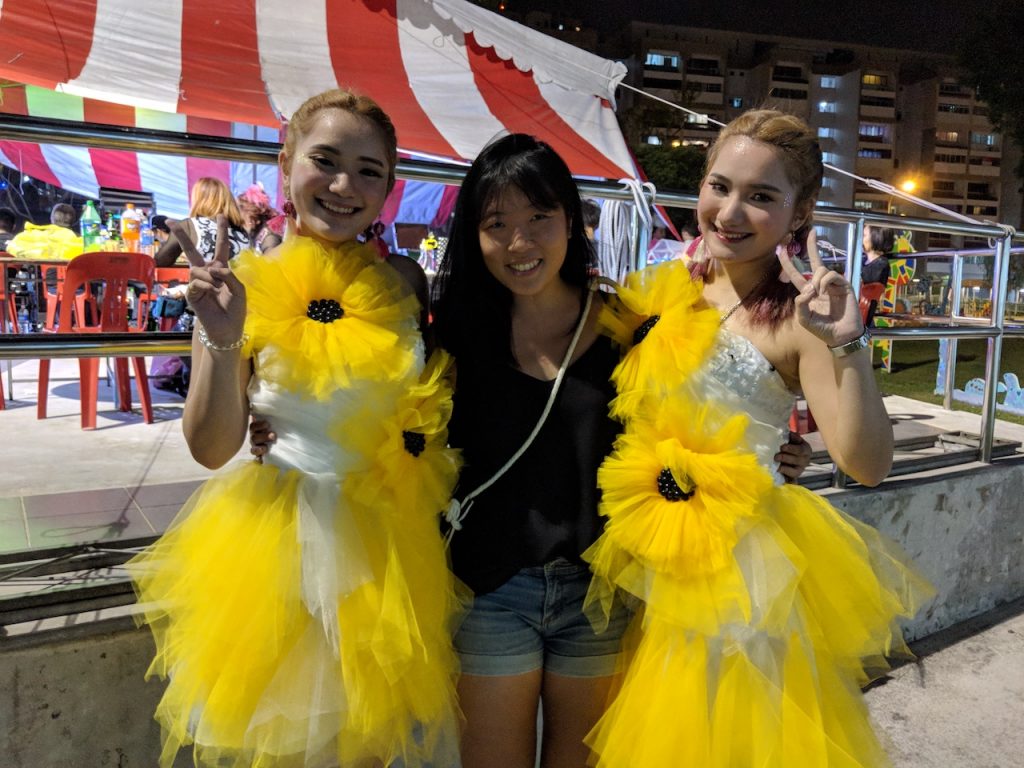On a scorching Tuesday afternoon, I am perspiring in The Living Room Cafe, a homely establishment located in the middle of godforsaken Bishan. The air-conditioning system is spewing hot air, and the cafe has neither WiFi nor a NETS machine.
10 minutes later, a young woman enters. Even though the cafe is packed, she stands out effortlessly with a face impeccably made up, and enough colours in her hair to do McFly proud. Scanning the room, the woman spots me in the corner and her eyes light up. She hurries over, apologising for making me wait.
We’d been texting regularly for a week, but the story behind how we came to meet is so strange and serendipitous that when she plonks herself down opposite me, I feel like I’ve been sucked into an alternate reality.
This woman is Sumiko and we are finally having lunch together.

Since its launch, I’ve religiously followed “Lunch With Sumiko”, a column by Sumiko Tan, executive editor of the Straits Times. The column’s concept involves Sumiko sitting down with renowned public figures over lunch, before taking a selfie afterwards. It’s a casual setup designed to humanise these public figures, so they appear both relatable and accessible to readers.
More than a year ago, I had the insane idea of doing my own Lunch With Sumiko feature, except with Sumiko Tan herself as the interviewee. She passed, of course, but like anyone who glimpses even a nugget of potential in an obviously ridiculous notion, I clung to this idea with a feverish obsession.
I resolved that the show must go on; I would have Lunch With Sumiko, goddammit.
While scouring the internet for possible Sumikos to have lunch with, I eventually chanced across Sumiko Thien. Her name initially stood out for being so close to “Sumiko Tan”. Yet after doing a bit of CSI on her social media profiles, I learnt I’d hit the jackpot.
This is better than getting the ‘real’ Sumiko; this Sumiko is way cooler, I realised.
Sumiko Thien, who sits opposite me, is one half of Shan Liang Jie Mei (sparkling sisters), a Singaporean twin duo who perform getai every Seventh Month.


Sumiko starts by debunking the myths about the getai industry, which she has been part of since she was 15. Despite being only 23, she’s not an anomaly. According to her, the younger generation have been gaining interest in getai both as performers and audience members, thanks to exposure of getai in mainstream Chinese media.
After one particular show, she was even approached by an Indian family, whose child, much to her surprise, spoke to her in fluent Mandarin. Furthermore, getai performances now comprise pop songs that are currently trending. Audiences expect singers to bring something “different” to each performance.
Unfortunately, the revealing outfits and degenerate men are still a staple, even though Sumiko shares that she and her sister dress more modestly these days.
“When I first started, I used to wear a two-piece with a mini skirt. The outfit also showed my belly button. Of course I wore safety shorts underneath, but some uncles would still take the opportunity to move near the stage. Then they would sit down and look up [my skirt]. Now I move to the centre of the stage,” she shares.
For Sumiko, the objectification and inappropriate touching from strangers began since she was in her mid-teens. While taking photos with Sumiko and her sister, men would often take the chance to slip their arm around the girls’ shoulders and waist. When called out, these men would simply laugh sheepishly.
“When I was about 15 or 16, a fan wanted to shake my hand. He grabbed me and started to caress my hand instead. I was new so I didn’t know how to react, but I remember forcefully pulling back my arm. When I got off stage, I cried because nobody had helped me in the moment,” she says.
Afterward, Sumiko recalls feeling grateful when an audience member scolded the man, although the incident still left a mark. A senior also advised her to speak out so these brazen fans know not to cross the line again.
Today, whenever fans want to shake her hand, Sumiko opts for a high-five instead.
If all else fails, her sister Michiko Thien (whom Sumiko claims is the more ‘fiery’ twin) often comes to her rescue.

Naturally, there have been various challenges. Firstly, Sumiko’s schedule works her to the bone. During the Seventh Month, she and Michiko need to rehearse every day, taking on four to five gigs per night. If the shows are located far from each other, they take on three shows per night.
Her irregular schedule means she’s had to rush off in the middle of meeting friends, some of whom no longer ask her out. Occasionally, she’s even cancelled on readymade plans with her boyfriend.
The hectic routine has also been a cause of conflict with her teachers. During her O Level year, she had to negotiate with a teacher to let her continue performing a little longer before stopping to focus on the O Level. This came after the teacher “scolded” her mother, in order for Sumiko’s studies not to be disrupted by getai practice.
Second, it’s crucial that costumes are never worn more than once, since they play an integral part in the getai experience. Even if audiences don’t understand or forget what the performers sing that night, it’s likely they’ll remember how dazzling or unique the outfits were.
As part of their act as twins, Sumiko and Michiko always wear identical outfits, which are personally sourced from outside Singapore. They go with a style that’s not “too outdated” or “too auntie”.
Sumiko shows me old photos of her performances to illustrate this, ones where she wore thigh-high boots and badly sequinned tops that I suspect would stretch out of shape after just one wash. She shudders, stating that these costumes would be a no-go today.
Third, there’s the stereotype of getai singers coming from “complicated family backgrounds” or being uneducated that Sumiko’s had to fight. As far as I know, her family is supportive, although her father took a longer time to accept his daughters’ career path. (These days, Sumiko’s mother manages her two daughters, while her father has offered to “sponsor” music lessons for Sumiko.)
Additionally, Sumiko and Michiko recently completed their bachelor’s degree in professional communication. So, she tells me, it’s important that she encourages her juniors to stay in school and study hard.
Finally and most unfortunately, she’s stopped eating durian and no longer craves the fruit, a sad side-effect for the durian lover. She also abstains from other heaty, spicy, and fried foods during Seventh Month, choosing to stick to a bland diet of porridge and pau.
“When I was schooling and doing getai, my mom would steam pau and siu mai for me. I used to eat pau every day until I got sick of it!”


To be clear, Sumiko is far from being a Crazy Rich Asian, but the money she earns from gigs is pretty decent. Singers are paid $80 to $300 per show, each lasting 15 to 20 minutes. During the Seventh Month, she earns about $4,000 to $5,000.
“My sister and I are quite good at saving. Since getting into getai at 15, I’ve stopped asking my parents for money to go out. Even though they still gave me minimal allowance, I wouldn’t bring it up if they forgot. I would also think twice before buying anything,” she says.
“With the money we earn, my sister and I also fully paid our polytechnic and university school fees by ourselves.”
Listening to Sumiko rattle off her life story like a seasoned pro, I find it hard to believe that she used to be “soft-spoken” and “introverted” in primary school. She claims getai eased her out of her shell, and uses this newfound outspokenness to educate the younger generation through her newly launched YouTube channel, Kotai笑 (kotai xiao).
Set up with fellow young getai singers, including her sister, the channel aims to enlighten Singaporeans about the rise of contemporary getai culture.
“I don’t want to just perform as a getai singer. I want to reach out to more people in my generation through fun productions, like our first episode that covered the different types of getai singers. We do everything ourselves, from filming to budgeting.”
Perhaps because we have grown comfortable with each other over the last hour, Sumiko then invites me for a show that night at the open space in front of Bukit Gombak MRT.

They switch from dialect to Mandarin effortlessly, so I don’t understand much of their rhetoric, but I am mesmerised nonetheless. I remember Sumiko sharing how she used to be inspired by Hokkien songs on the radio that her mother sung along to in the kitchen, and I find myself searching for her proud mother offstage.
Dressed in a tank top and denim shorts, I am just a tad out of place amidst a sea of elderly men and women. The men, in particular, would fit in nicely among ogling photographers at a cosplay convention. After the show, I observe the sisters with a few of these fans, whose behaviour makes me uncomfortable.
Still, Sumiko and Michiko oblige to one selfie after another—a post-show routine that must be second nature, having done it for almost a decade.
With any job, whether born from passion or to pay the bills, it’s easy to get jaded. In this case, forging a career in the entertainment industry is always tough, what more in one of its most misunderstood areas.
But singing getai still seems fun for the twins, even if many people their age might fail to see the joy in the craft.
Similarly, being exposed to a world so far removed from my reality was thoroughly enjoyable for me too. It reinforces my belief that seeking “fun” is hardly superficial; it’s paramount to relishing work, life, and everything in between. To think this entire experience stemmed from a mad idea I was too stubborn to let go.
I suppose, then, that the lesson is this: Don’t dismiss your unconventional interests or crazy ideas. Follow them down the rabbit hole. Truly savour the hell out of every moment.






